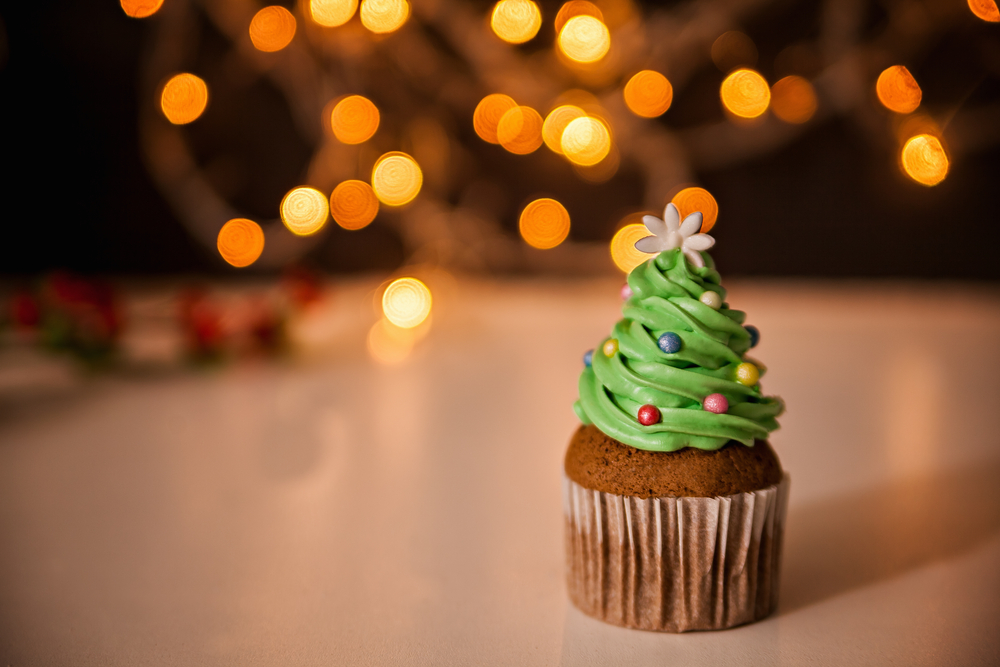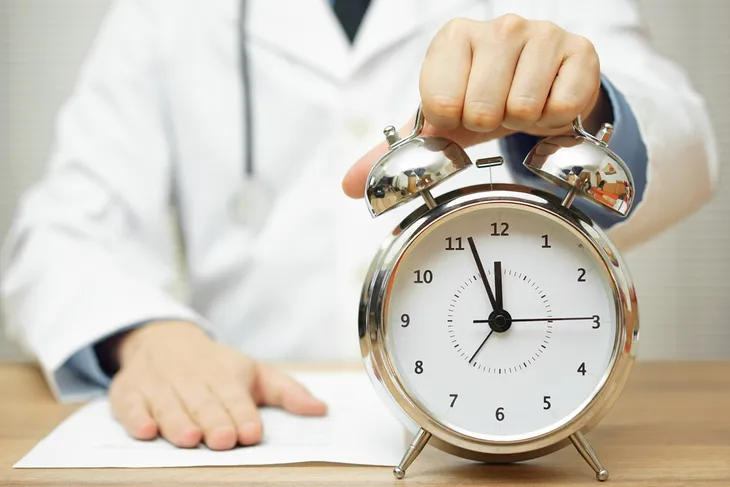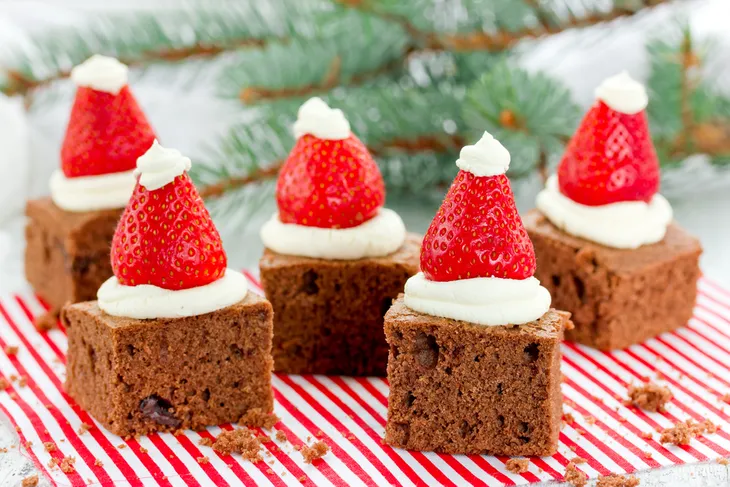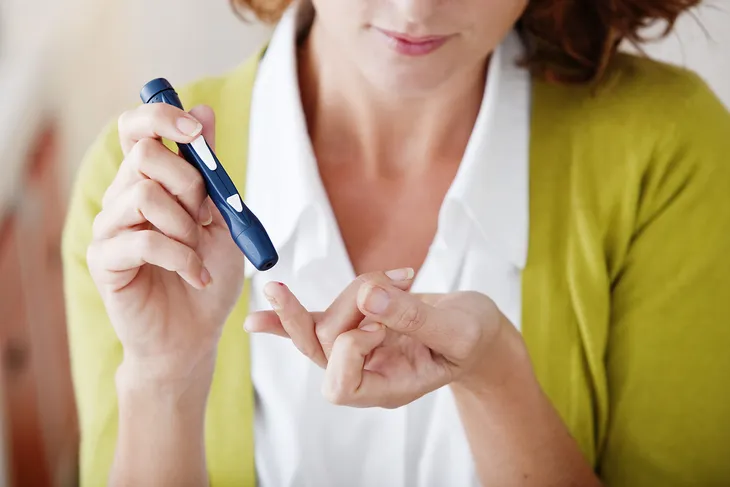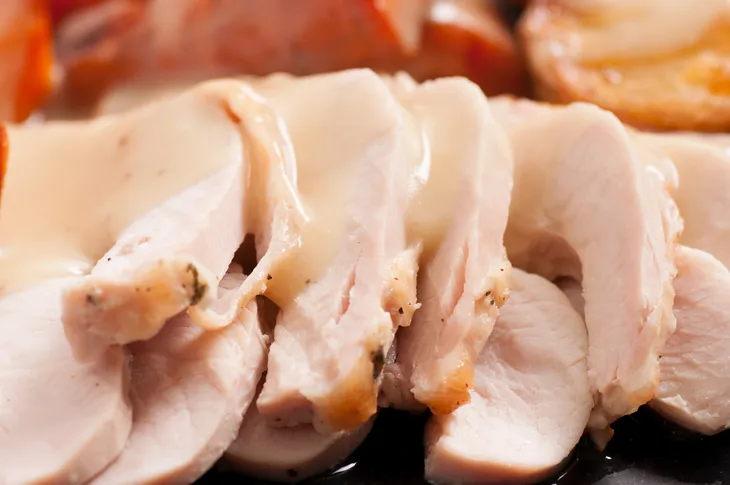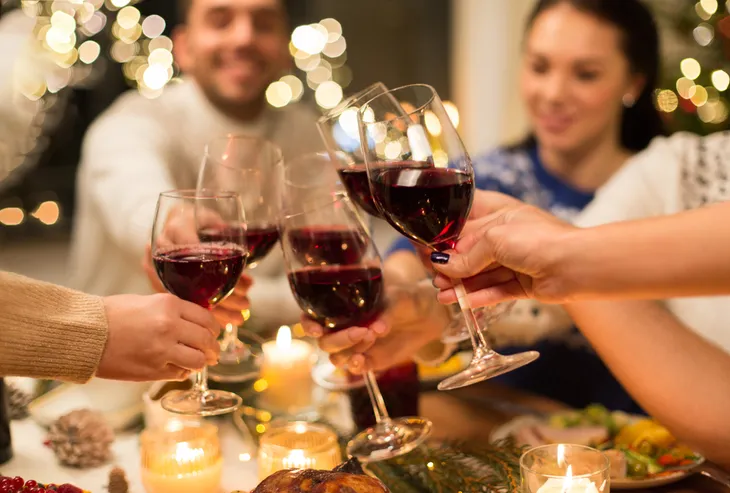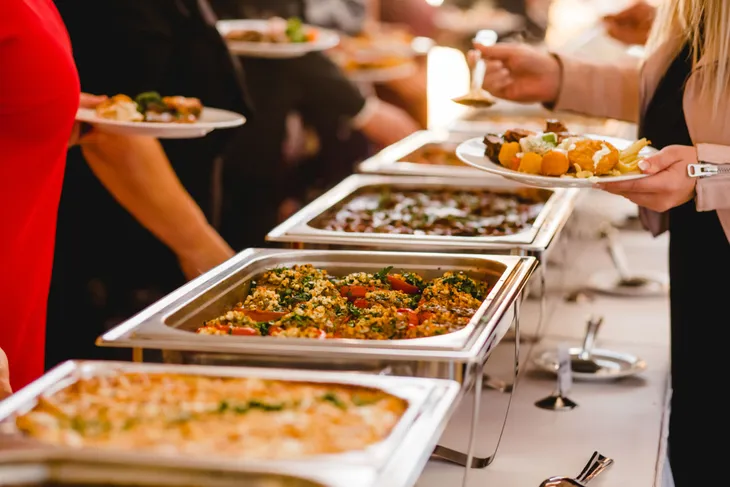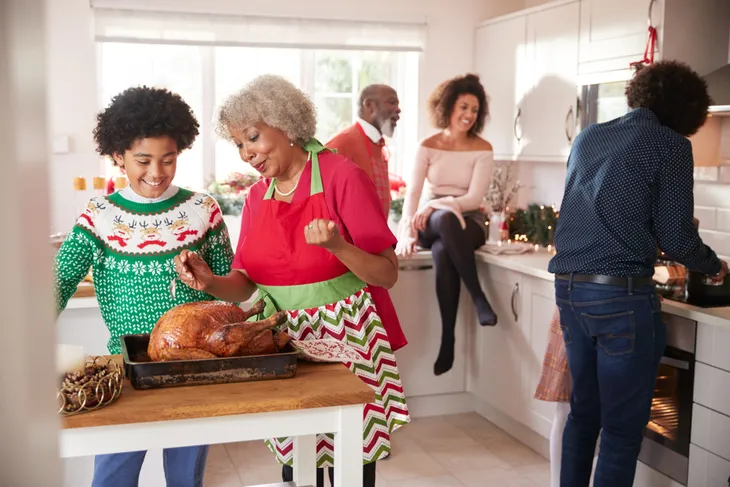It’s very tempting to fill up on empty carbohydrates and sugary sweets — all of which are super unhealthy. What’s even more tempting is that these sweets and carb-rich foods are everywhere this time of year! This makes staying in control extremely difficult, especially when everyone else is indulging.
Most holiday foods are unhealthy for us, but they’re particularly bad for people with diabetes. But we’re not here to be a scrooge and tell you to sit this holiday season out. That’s not fun! Everyone should be able to partake in a little holiday indulgence, regardless of whether or not they have a health condition (and as long as your doctor seems okay with it). If you are going to join in on the festivities, it’s important to set a few guidelines and rules for yourself. Here are some sweet ways to manage diabetes over the holidays…
Want diabetes content delivered straight to your inbox? Sign up for our Diabetes newsletter and receive exclusive news and articles written from our team of diabetes experts.
Maintain Structure
There’s no denying that the holidays are a busy, busy time of year. There’s so much to do from shopping for gifts, planning dinners, getting together with family and friends, and of course, all those holiday parties. The key to surviving the chaos is to plan ahead and maintain some kind of structure. Remember to stick to all of your daily habits that help manage diabetes. This includes daily exercise, a normal eating schedule (with a healthy diet), regularly testing blood sugar levels, and taking medication.
Just because it’s the holidays and you’re eating out more than usual or socializing more often, it’s no excuse to throw all the rules out the window. Diabetics need to maintain some sense of structure and schedule in order to remain healthy during the holidays. Try to exercise regularly, even if it means asking a friend or family member to go out for a brisk walk after dinner. Keep up with your medications, carry them with you at all times so that you can take them at the same time every day or as requested by your doctor. If you know you’re going to be eating a big dinner, try to eat less or a little healthier earlier in the day to balance it out.
Check the Menu Ahead of Time
There is so much food everywhere we go during the holiday season whether it be at work, a friend’s holiday party, family gathering, or just out socializing on the weekend. In addition to gifts, a big part of the holiday season is celebrating with food and drinks. This can be extremely overwhelming for someone with a condition that requires them to control their diet. Most of the time you’ll find yourself at the mercy of what another person is serving. If you’re comfortable enough with the host, don’t be afraid to call ahead of time and ask what he or she will be serving.
Another great reason to check the plan ahead is so that you can indulge in those favorite treats and sweets without fear. WebMD writes, “For instance, if you know that your mom is making a favorite pie or dessert, plan your meals and medication during the day accordingly so that you can have a slice.” On the flip side, if you look into what will be at the party ahead of time, you might learn that there isn’t going to be any food served. This means you’ll have to eat a snack beforehand.
Bring Your Own Dish
Unless you’re the host, you will likely be traveling to a friend or family member’s home this holiday season for a Christmas dinner or party. While holiday parties and get together are all part of the fun, it can be difficult for a diabetic because they have no control over what’s being served. Let’s face it, unless a person themselves or a loved one has diabetes, most people don’t know the general menu rules and regulations are for a diabetic.
To solve this problem, offer to bring your own dish that is lower in calories and fat. It doesn’t have to be anything complicated and your host will likely appreciate the gesture. It can be a vegetable tray or a vegetable-based appetizer, says the Cleveland Clinic. Bringing your own dish is a great way to ensure there will be something you can enjoy at the party. “Every diabetic is different and you need to figure out the balance of different foods that work for you,” says Elaine Magee, MPH, RD, author of Tell Me What to Eat if I Have Diabetes: Nutrition You Can Live With to WebMD. There are so many resources out there for diabetes-friendly recipes and lots of them are super tasty and delicious, they just require less sugar or using sugar replacement ingredients.
Closely Monitor Symptoms
The key to enjoying the festive season when you have diabetes is to closely manage your symptoms, while making smart choices when it comes to eating and exercising. Let’s face it, even if you’re keeping tabs on what you’re eating and trying not to over indulge, you’ll still likely be eating more than you typically would any other time of the year. This is why it’s important to keep a close eye on your levels. “If ever there is a time to be religious about taking your blood sugars it’s during the holidays,” says Magee to WebMD.
While it’s tempting to give yourself a day or weekend off, you’ll regret it later. WebMD warns that the consequences of diverting away from your meal plan are long-term and immediate. “When diabetics are off their program whether their blood sugar is up or down they know it. They feel sick,” says Magee to the source. Work with your doctor, or health care provider, to devise a plan where you can still be merry this time of year without experiencing a prolonged spike in your glucose meter reading.
Remove The Turkey Skin
The turkey is often the star of Christmas dinner, so you shouldn’t have to eat a substitute while your relatives are happily shoveling the delicious bird down their gullets. The BBC’s Good Food magazine notes that if you’re eating turkey this season, remove the skin and stick to lighter breast meat as this will help reduce calorie intake.
Meanwhile, you can still stuff yourself with stuffing, but the magazine recommends avoiding using high-fat sausage meat and turn to a delicious vegetarian stuffing recipe. Also be sure to cook the stuffing as a separate dish from the turkey.
Don’t Deprive Yourself of Sweets
In addition to the carbohydrate-rich dinners and other meals during the season, there’s of course all of the baking that comes with it. The American Diabetes Association says you shouldn’t have to completely retreat from sweets, but obviously there has to be some restraint for the good of your health. That means simply limiting the size of that slice of chocolate cake, or taking out a carb-rich item from your dinner to substitute with a treat after.
Gene Barrett, MD, of the department of internal medicine at the University of Virginia warns WebMD readers about unconscious eating. We’ve all done it before. Mindlessly eating while we’re watching TV or grazing the appetizers and candy dishes while socializing at a party. While a small treat here and there isn’t going to do much harm, it adds up really quickly! This is where planning ahead and maintaining structure come into play. If you want to indulge in a treat, decide ahead of time what the treat is going to be. You don’t have to deprive yourself of holiday goodness, it just means you can’t nibble away mindlessly all night long. Picking one dessert is the best way to (literally) have your cake and eat it too!
Mind Your Intake Of Wine
Alcohol is often a big part of the holidays, and it can be easy to over-indulge during a social setting or during a Christmas party. However, drinking too much (especially fizzy and sugary alcoholic beverages) over the holiday season can make your blood sugar spike but can also leave you with low blood sugar, depending on a number of factors, according to Diabetes.co.uk.
The website notes that alcohol can affect each person with diabetes differently, and certain medications can also dictate the outcome of drinking. Taking meds can inhibit your liver from turning proteins into glucose, which can lead to hypoglycemia that can cause symptoms resembling being severely intoxicated (the condition can be very dangerous).
Don’t Drink on an Empty Stomach
Further to the previous point, drinking on an empty stomach can increase the chances of having severe side effects when you’re dealing with diabetes. Alcohol without eating can lead to low blood sugar, which can be (dangerously) confused with drunkenness. According to the Cleveland Clinic, “moderate alcohol intake can have a blood sugar-lowering effect” which is why it’s so important to not drink on an empty stomach. “The amounts of calories and sugars vary significantly among drinks so it can be useful to search nutrition information about your favorite drinks.”
Check your glucose levels before you drink, to ensure it’s not already low. It also noted in some cases, drinking alcohol can cause a drop in blood sugar for a full day, so if you want to avoid these kinds of complications it’s probably best to forego drinking altogether. For those who want to drink responsibly, the source recommends that diabetics limit their drinks to one drink per day for women and no more than two a day for men. For reference, the Cleveland Clinic also lists one drink as 4-ounces of wine, 12-ounces of beer, and 1-ounce of distilled spirits.
Get Moving
The holidays are also another great excuse to sit on the couch and watch all of your favorite seasonal movies, or just sit and chat with friends and family. While this all sounds great, it’s not going to help your body deal with properly processing the food and drink that (we’re going to assume) you’ve consumed. Staying active during the holidays is the best way to combat all those extra calories. Not only that, but it also helps reduce stress which is important for diabetics.
According to the Cleveland Clinic, diabetics should aim to get 40-minutes of exercise every day, but if your day is packed with holiday events and gatherings, spread it out throughout the day. Go for two or three 10 or 15-minute walks. You can even bring someone along so that you’re still getting that one-on-one time with a friend or family member. A brisk walk around the block each day over the holiday season should help offset those guilty indulgences and help manage symptoms.
Navigating a Buffet
Everybody loves a good buffet, especially around the holidays when it’s stocked with our seasonal favorites. The problem with a buffet is that there is no portion control. People are able to collect as much food as they want and even return for seconds and thirds! While we encourage diabetics to avoid buffet style meals, that’s not realistic. Instead follow some of these tips on how to navigate a buffet and practice self control.
The first tip from the Centers for Disease Control and Prevention (CDC) is to grab a small plate instead of a big plate. This will help limit the amount of food you can take. Fill this small plate with your favorite foods. A little bit of everything. The source suggests starting with the vegetables because these are the most important part of your meal. The next tip is to eat slowly. “It takes at least 20-minutes for your brain to realize you’re full,” writes the CDC. We already talked about the dangers of alcohol for diabetics, and CDC suggests avoiding it all together. If you do indulge in a drink, limit your consumption because “alcohol can lower blood sugar and interact with diabetes medicines.”
Get Lots of Sleep
In addition to all the food and alcohol, another thing to balance during the holiday season is sleep! There are so many events and parties in the evenings, getting a good night’s sleep can be difficult. We all need lots of sleep and rest to function properly and be our best selves, but for diabetics, it’s even more important. “Sleep loss can make it harder to control your blood sugar, and when you’re sleep deprived you’ll tend to eat more and prefer high-fat, high-sugar food,” writes the CDC.
The source recommends aiming for 7 to 8-hours of sleep every night. Not only will this help control blood sugar levels, it will also help protect against mindless eating.
Enjoy Yourself!
While the holidays can be overwhelming for a diabetic, the important thing is to have fun. It’s a special time of year that is about spending time with the ones you love. Don’t get carried away with the food and drinks, focus on what’s important.
As long as you set some guidelines for yourself and stick to them, you’ll be fine! It’s totally possible to enjoy the holidays, sweets and all, as a diabetic. It just requires a little extra planning and regulation.
